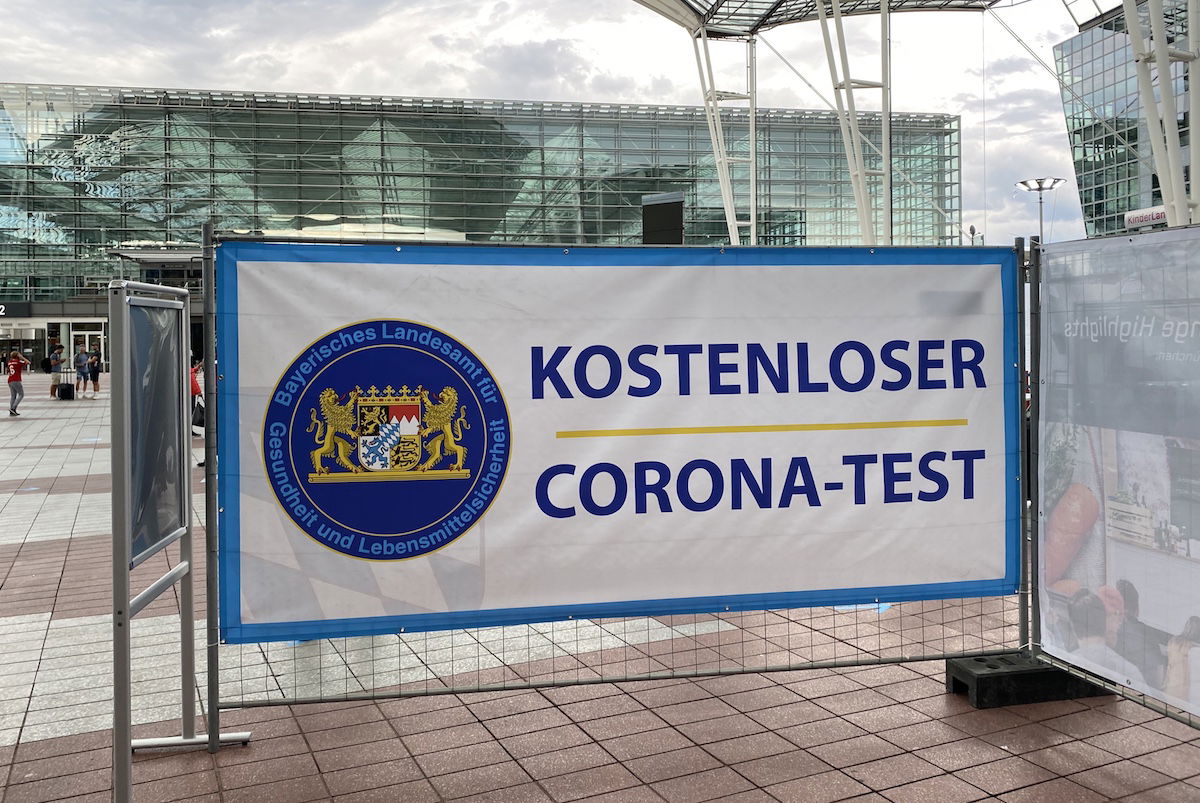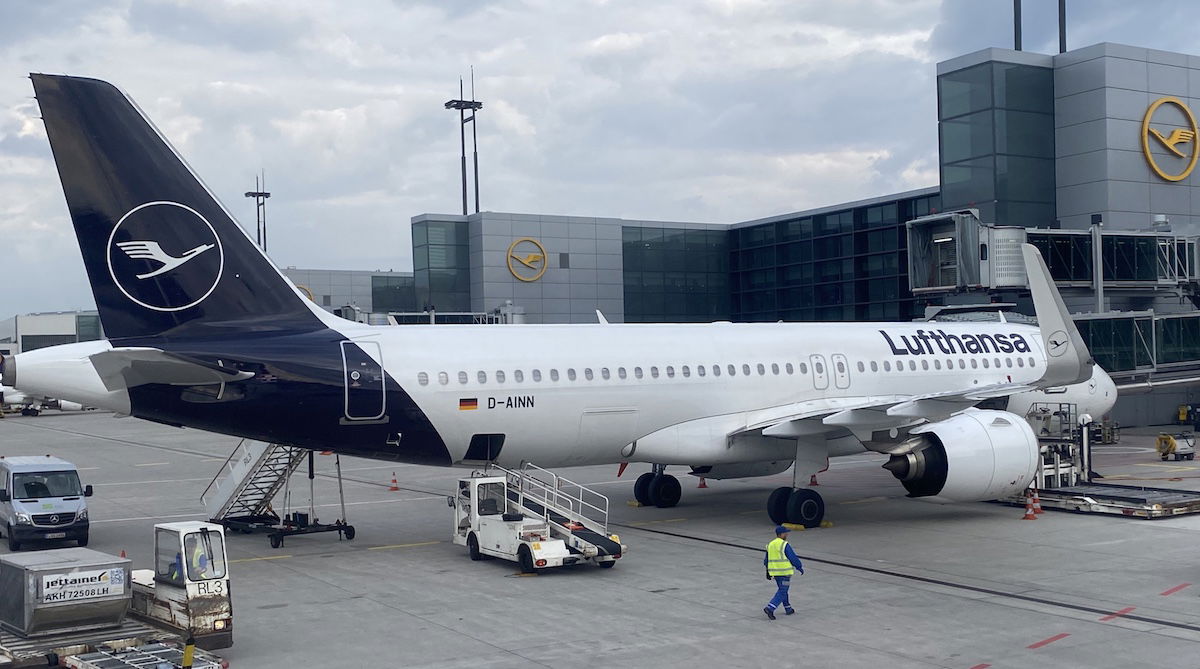It’s interesting to see that Germany may be reversing course on its approach to testing arriving international travelers.
In this post:
Germany’s current quarantine & testing rules
The European Union continues to be off limits for a vast majority of people:
- Travel within the European Union is possible
- European Union residents can travel to anywhere they’re allowed (which is most places, except the United States)
- For non-residents, only those from just over a dozen countries are allowed to visit the European Union
So, what’s the requirement to get tested and quarantine upon return to Germany?
Those coming from “high risk” areas (listed here) have to get a coronavirus test. This can either be done within 48 hours of travel, or it can be done on arrival. The travelers then have to enter a 14-day quarantine, though as soon as a negative test result is confirmed, that quarantine no longer applies.
Note that the list of high risk countries is constantly changing, and is based on a place having more than 50 new infected people per 100,000 in a seven day period.
Unlike other countries, Germany has made it really easy to get tested when returning from international travel. For example, Munich Airport offers free coronavirus testing, and results are typically provided within a day or so.
 Munich Airport’s coronavirus testing facility
Munich Airport’s coronavirus testing facility
Why Germany may change its travel testing strategy
It’s often said that for travel to start to recover, frequent and easy testing is needed (of course a vaccine would be ideal, but that seems like far from a sure bet). However, there are also some downsides even to free and easy testing.
It’s being reported that Germany is planning on adjusting its current quarantine and testing policy, per Germany’s Health Minister:
- The amount of testing being done is causing staff and equipment shortages, as well as causing capacity issues at laboratories
- Some have suggested that the tests aren’t effective, as people test negative upon arrival, but then test positive several days later
- The new concept is that Germany could require all returning travelers to go into a five day quarantine; passengers would still get a test, and if there’s a negative test result, the travelers wouldn’t have to complete the rest of the 14-day quarantine
- Pricing hasn’t yet been decided, but as part of this it’s possible that testing will no longer be free
There’s definitely some merit to requiring everyone to go into a five day quarantine. Testing upon arrival or before travel won’t catch all infections. In other words, if you do get coronavirus on a plane, it’s unlikely that a test immediately upon landing would reflect that.
In other words, if a German is taking a quick weekend trip abroad, it’s possible they could catch coronavirus while abroad, and still get a negative result when arriving back into Germany.
So there’s some merit to requiring a five day quarantine, since in most cases symptoms would show up within that amount of time (but not always).
It ultimately comes down to how much risk a place is willing to take, and balancing low infection rates with a semi-return to normal. When Hawaii was considering welcoming tourists with negative test results taken shortly before travel, they were working on the assumption that this would catch 80-90% of cases. That would still mean some people with coronavirus would make it to Hawaii, but it would at least greatly reduce the number of cases.
 Travelers returning to Germany from high risk areas may have to quarantine
Travelers returning to Germany from high risk areas may have to quarantine
Bottom line
While no final decision has been made, Germany is allegedly planning on making a five day quarantine mandatory for those returning from high risk areas, in addition to a negative coronavirus test. With this, it’s also possible that free testing on arrival would be eliminated.
Testing capacity is one of the reasons for this, though realistically speaking travel should be slowing down in Germany in the coming weeks, as the school year restarts.
The other issue is that testing immediately upon arrival won’t catch all infections that could have occurred abroad. Testing along with a five day quarantine is more likely to catch infections, but the question is just how much of a difference it would make.
What do you make of Germany’s planned new approach to testing and quarantining?





Hawaii's problem is that it is an island, so that just adds to the issues with controlling the virus.
Germany. Why should it be free if you aren't German!
Germany has been processing ca. 0.9million tests per week recently, only a fraction of those have been for travellers entering from designated high risk areas. There is no real shortage of "stuff and money" involved here but this is rather about a smart and sustainable testing strategy. At the moment there is a capacity limit of 1.2millions test per week in Germany but they want to leave a significant buffer for a potential second wave...
Germany has been processing ca. 0.9million tests per week recently, only a fraction of those have been for travellers entering from designated high risk areas. There is no real shortage of "stuff and money" involved here but this is rather about a smart and sustainable testing strategy. At the moment there is a capacity limit of 1.2millions test per week in Germany but they want to leave a significant buffer for a potential second wave in fall as it´s not considered sustainable to run near capacity for a prolonged time. See also (in German): https://www.faz.net/aktuell/politik/inland/labormediziner-harald-renz-ueber-sinn-von-corona-tests-16922415.html
Well, if they are unable to process the tests and deliver the results, it seems obvious they need to reconsider the operation. In Germany, there is a huge gap between private and public services. Private companies are usually world class, public service is a disaster.
Smart move by Germany. If every country took the same steps, we might see some real progress. At least if people really did quarantine.
@Carlo. Yes, that is a true story. My ex and daughter arrived in MUC on August 3. They got tested at the free testing center there. My daughter received her results the next day. Her mom did not ever receive results and after a number of calls was told that "they can't find them." She had to get tested again (her choice as no one told her she should).
The tests are a snapshot of the exact time you have it done, even seconds after you leave the test you may encounter a covid molecule and become infected, a negative test means nothing, don't kid yourself into thinking it provides any assurance at all. We have to get beyond this!!!!!
Germany never had the stuff and the money to do those tests. They "forgot" to give 900 people the result, some of them were positiv. Their neighboor country Luxembourg did covid test since the reopening and is still doing tests for free...
@Greg I think you are missing the point of a quarantine.
Seems like a decent balance. Five days is reasonable for those who need to come in or back from high risks areas. The only question is how well it will be enforced. Unless they implement tracking ability like in Hong Kong we can pretty much bet that there will be very little enforcement and/or compliance. So it's all for show. The EU is too much of a black hole to enforce it. Under two hours...
Seems like a decent balance. Five days is reasonable for those who need to come in or back from high risks areas. The only question is how well it will be enforced. Unless they implement tracking ability like in Hong Kong we can pretty much bet that there will be very little enforcement and/or compliance. So it's all for show. The EU is too much of a black hole to enforce it. Under two hours drive from MUC or FRA and you are in a host of other countries that would make it pretty impossible to locate you.
They need to move the test then from arrival to 5 days after arrival. Make everyone stay at a hotel near the airport I suppose.
From someone with no science background, a test upon arrival/within 72 hours of departure, 5 day quarantine, then another test seems to make a lot of sense and isn't terribly inconvenient. No solution will make everyone happy but this one seems to be a good middle ground.
Any rule with even a few hours of quarantine, and the threat of longer quarantine if you fail the test, is a nonstarter for general travel
No one wants to be stuck at the airport of a foreign country, denied boarding, because they failed a test